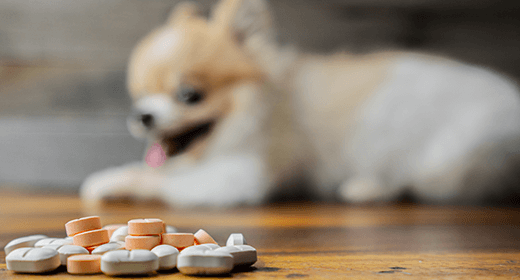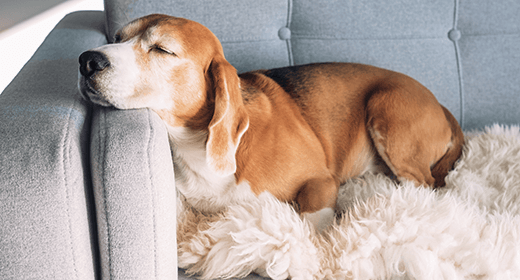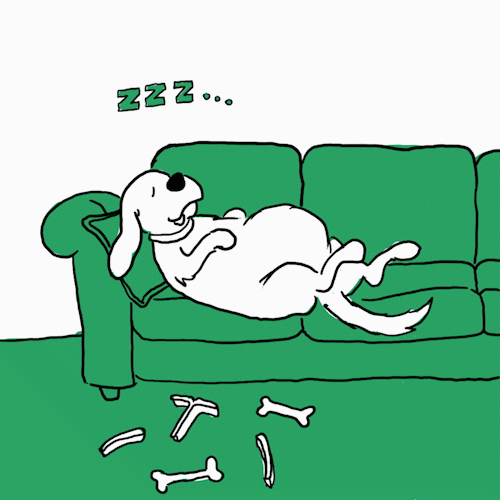

Providing dogs with vitamins, minerals, and other nutritional components is important to their health and well-being. The best way to do so is by feeding a high-quality complete and balanced diet. Supplementing dog food often upsets the balance and may lead to a variety of health problems.
People supplement their dog's diet for different reasons. Some of these reasons might include:
It is important for concerned pet owners to realize that a quality dog food is carefully formulated to meet the caloric needs of the animal. In addition, the food provides the essential amino acids, fatty acids, vitamins, and minerals specific to the nutritional requirements of dogs. Quality foods are complete and balanced for a specific life stage or lifestyle. By adding table scraps or other supplements, the delicate nutrient balance can be disrupted.
The interaction between different minerals is very complex. Fortunately, this is an area of nutrition that has been the focus of extensive research throughout many years. Research has shown that not only are the individual levels of minerals in a diet important, but so is the proper balance. An excess of one mineral may affect the absorption of a second, and lead to a deficiency in that second mineral.
One common supplement is feeding additional meat. However, because meat contains 20 to 40 times more phosphorus than calcium, adding meat to a balanced diet will upset the calcium to phosphorus (or Ca:P) ratio, which is important for proper bone development and maintenance. This may prompt the animal's body to absorb calcium from the bones in order to reach the right balance. This is often the case in older animals that experience tooth loss due to the resorption of bone from the lower jaw. Ca:P ratio should range between 1.1 to 1.4 parts of calcium for each 1 part of phosphorus.
Excess amounts of calcium have been associated with several bone diseases affecting growing puppies. Owners of large-breed puppies in particular believe that their puppies require extra calcium for proper development of large bones. Adding yogurt, cottage cheese, or calcium tablets to the pup's diet will only upset the body's delicate mineral balance. Remember that large-breed puppies will consume more food and receive the calcium their bodies need by eating the recommended portions. The best way to support a normal growth rate is to feed growing dogs adequate—but not excessive—amounts of a balanced diet, using a portion-controlled regimen.
The Association of American Feed Control Officials (AAFCO) regulates the pet food industry and has established certain nutritional requirements for dogs and cats. These requirements are published annually in the AAFCO Manual. Only pet foods that have met the strict testing criteria established by AAFCO can carry the 'complete and balanced' statement on the label.


We asked dog owners* how many hours a day they think their adult dog sleeps. The answers averaged around 9.7 hours. Truth is, dogs normally sleep around 12-14 hours a day. (Cats sleep 12-16 hours, which is why it’s called a “catnap,” we presume.) “Normal” can depend on lots of things. Bigger breeds definitely need more z’s. Older dogs tire quicker and sleep more. Growing puppies need up to 20 hours a day. Being cute must really be tiresome.
But why do they sleep so much? We’re not going to let sleeping dogs lie; we’re getting to the answers.
Dogs spend less time in deep REM sleep, so they’re able to wake quickly and be ready to go — whether it’s responding to danger or the opening of a bag of chips. It also means they need to doze more often to make up for that lack of truly restful sleep.
In general, carnivores need more rest. “In their wild dog and wolf days, it was a hunt for food, bringing down large prey, then feasting,” says
Opens a new windowDr. Jo Gale, BVetMed CertLAS MRCVS, Senior Manager, Global Science Advocacy at Waltham Petcare Science Institute. “They’d spend a long time digesting and may not eat for a few days. There’s a tendency to conserve energy.” Just think about how you feel after eating a huge steak. Incoming meat coma. Goodbye, belt. Hello, sofa.
Yawn. When owners are out of the house, dogs often sleep simply because they’re bored. They’re not into books and haven’t quite figured out how to turn on the TV, so why not catch a few extra winks? Plus, they want to be super refreshed when you come back home in the evening.
Some dogs like to sleep longer and some dogs are just lazier than others. According to
Opens a new windowDr. Tammie King, Applied Behavior Technical Leader at Waltham Petcare Science Institute, “You might see more sleeping after intense exercise or they’ve gone to a pet sitter or boarding center due to high stimulation.” There’s usually no cause for concern unless they seem lethargic and lose interest in playing or eating, or begin listening to a lot of emo music.
Their wild days long gone, dogs have adapted their sleep schedules to match humans’ sleep schedules. Sort of. They still might get you up in the night or early morning before your alarm goes off. It’s best to exercise them in the morning and evening so they’re more tired — and have used the facilities — right before everyone else goes to sleep.
Now, the only question remaining is, what do you think your dog dreams about?
*Surveyed U.S. dog owners, age 18+
Sample Size: n=201
Fielded May 8-10, 2020

